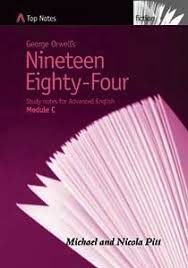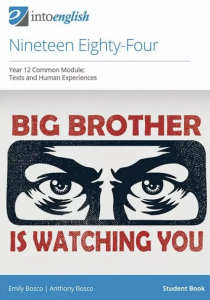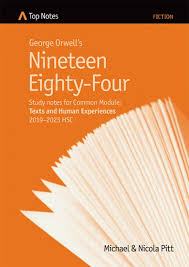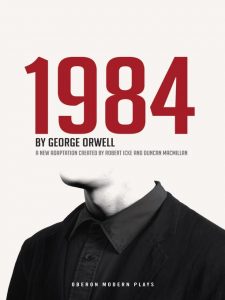Nineteen eighty-four
Top Videos
Finding 1984, examines the subject matter of the dystopian classic and looks at how technology is allowing modern society to be monitored in ways predicted in the novel that Orwell wrote in 1948
Top Websites
Top Academic articles
Dwan, D. (2010). Truth and freedom on Orwell’s nineteen eighty four .Philosophy and Literature, 34(2), 381-393
Hunt, William. “Orwell’s Commedia: The Ironic Theology of Nineteen Eighty-Four.” Modern Philology, vol. 110, no. 4, 2013, pp. 536–563
Jacobs, Naomi. “Dissent, Assent, and the Body in Nineteen Eighty-Four.” Utopian Studies, vol. 18, no. 1, 2007, pp. 3–20
McGovern, Stewart. ‘Metropolis’ and ‘Nineteen eighty four’: Writing a formal, extended response. Metaphor, No. 3, Aug 2015: 25-28
Place, T. (2003). Orwell’s 1984. The Explicator, 61(2), 108-110
Narrative viewpoint and the representation of power in George Orwell’s Nineteen Eighty-Four
Handy links
‘Most Orwellian winner yet’: The Invention of Russia takes Orwell Prize.
George Orwell’s notebook in which he lists ideas for what would become Nineteen Eighty-Four, including ‘newspeak’, ‘doublethink’ and ‘two minutes of hate’.
About Nineteen Eighty-Four – British Library
Macquarie HSC study guide pp172-180 – Explains characters and concepts in 1984
The masterpiece that killed George Orwell – In 1946 Observer editor David Astor lent George Orwell a remote Scottish farmhouse in which to write his new book, Nineteen Eighty-Four. It became one of the most significant novels of the 20th century. Here, Robert McCrum tells the compelling story of Orwell’s torturous stay on the island where the author, close to death and beset by creative demons, was engaged in a feverish race to finish the book.
1984 thought crime? Does it matter that George Orwell pinched the plot? George Orwell’s Nineteen Eighty-Four is a classic – but it owes its plot, characters and conclusion to Yevgeny Zamyatin’s 1920s novel “We”.
Freedom or oppression? The fear of dystopia. Mike Ashley considers how British, Russian and American writers created repressive imaginary worlds and totalitarian regimes in order to explore 20th-century political concerns.
Nineteen Eighty-Four and the politics of dystopia Roger Luckhurst describes the political environment in which George Orwell wrote and published Nineteen Eighty-Four, and analyses its different – and often opposing – interpretations.
George Orwell’s luminous truths, Jason Cowley at The Financial Times.
Orwell’s review of Assignment in Utopia. Assignment in Utopia is widely recognised as one of the texts that served as inspiration for Orwell’s novel Nineteen Eighty-Four.
Orwell’s political diary. Read diary here.
A collection of pamphlets, mainly political, formed by George Orwell.
Images from the Orwell diary entries
If it’s “Orwellian”, it’s probably not.(The New York Times)
The hell of Nineteen Eighty-Four Essays in Criticism. 47.2 (Apr. 1997): p143+. From Literature Resource Center.




 EXPLORE 823 ORW:P
EXPLORE 823 ORW:P EXPLORE 809 BOS
EXPLORE 809 BOS EXPLORE 823 ORW:B
EXPLORE 823 ORW:B
